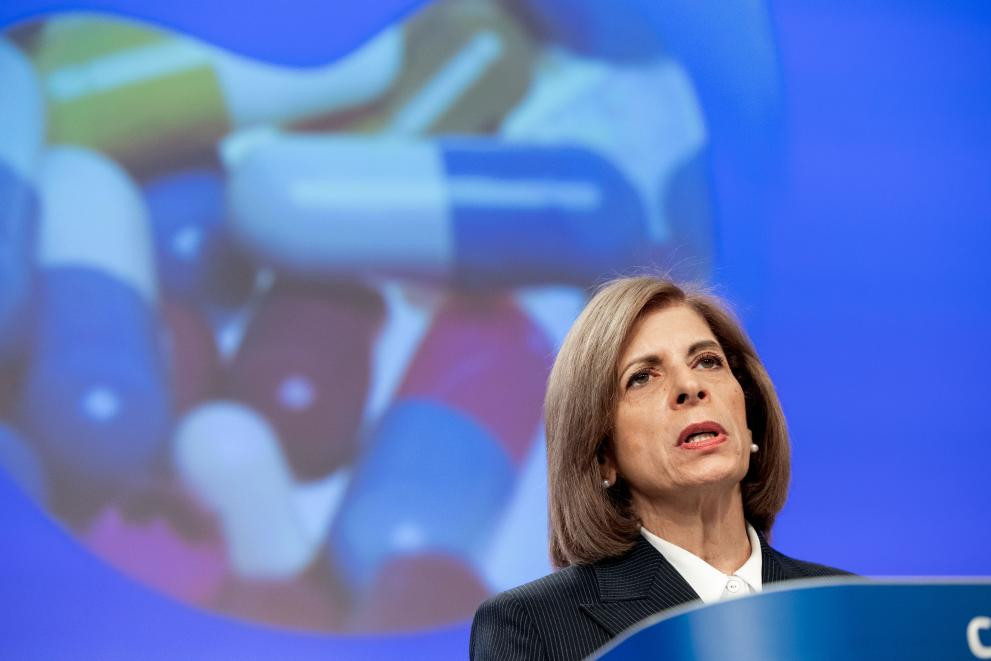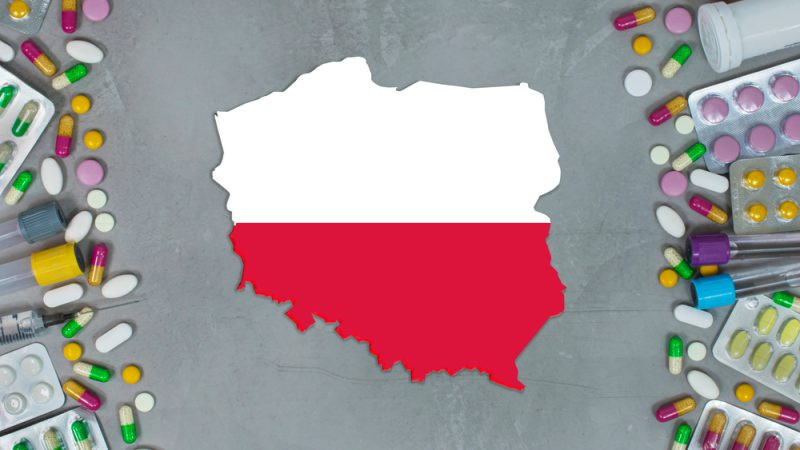Poland's Proactive Pharmaceutical Security Strategy: The National Critical Medicines List
The Polish Ministry of Health has made a significant stride towards enhancing the nation's pharmaceutical security by developing its inaugural National Critical Medicines List. This initiative directly addresses the growing need to strengthen Poland's medical supply chain while simultaneously aligning with the domestic pharmaceutical market's expectations. The initiative underscores a strategic, forward-thinking approach to ensuring consistent access to vital medicines, even amid potential global supply chain disruptions.
Securing Essential Medicines: A Strategic National Approach
The Ministry asserts that the inclusion of a specific active pharmaceutical ingredient (API) in this list underscores its critical role in treating severe illnesses. Importantly, however, the Ministry clarifies that listing does not automatically signal an impending shortage within the Polish market. Instead, the list serves as a strategic tool, proactively bolstering Poland's preparedness for potential supply chain vulnerabilities. President of the Polish Union of Employers in the Pharmaceutical Industry 'Medicines for Poland,' Krzysztof Kopeć, commended the Ministry’s efforts, highlighting the significant step towards improved national security. He emphasized the list’s crucial role in shaping Poland’s contributions to the EU-wide critical medicines catalogue.
Incorporating EU and National Perspectives
In formulating the draft National Critical Medicines List, the Polish Ministry of Health carefully considered several key factors. Active pharmaceutical ingredients (APIs) featured in the EU's critical medicines catalogue, a compilation released on December 12, 2023, by the European Commission, Heads of Medicines Agencies (HMA), and the European Medicines Agency (EMA), played a significant role. This EU list encompasses over 200 APIs deemed essential across the Union. The ongoing annual updates ensure the catalogue reflects evolving needs and priorities. This EU list informed the Polish initiative, but it also included uniquely national considerations. The selection criteria were finely tuned to match Poland's treatment programs and the availability of medicines within the domestic market. The Ministry also integrated data from a separate catalogue of key APIs developed under the Ministry of Development and Technology's API Production in Poland Project, adding 52 critical APIs identified to ensure pharmaceutical security in Poland.
A Multifaceted Assessment: Ensuring Patient Safety
The Ministry's assessment method involved evaluating the clinical importance of each substance, drawing upon input from national consultants across various medical disciplines. This comprehensive analysis factored in several crucial aspects. The availability of alternative treatments, the potential health risks resulting from a medicine's unavailability, and its overall effect on patient safety were all carefully evaluated. The President of the Office for Registration of Medicinal Products, Medical Devices, and Biocidal Products also contributed significantly, providing insights including manufacturing location data. The final list includes 238 active substances—acetylcysteine, acyclovir, folic acid, adrenaline, and amlodipine are just a few examples.
Public Consultation and Future Enhancements
A key element of the process was public consultation. The Ministry of Health openly invited comments and suggestions, with a deadline of December 10th. The feedback received is undergoing a rigorous review to refine the final version of the National Critical Medicines List. This collaborative approach reflects a commitment to transparency and ensuring the list accurately addresses the needs of the Polish population.
The European Context: Collaboration and the Critical Medicines Act
Kopeć also highlighted the critical link between the Polish National Critical Medicines List and the broader European context. He explained that without a national list, Poland would have limited influence over the shape of the EU-wide list, slated for an update later in December. This emphasizes the interconnectedness of national strategies with EU-level initiatives. The final form of the European list is heavily dependent on contributions from member states via their individual national lists. He noted the ongoing development of the 'Critical Medicines Act' at the EU level, which will include provisions for financial assistance to support the production of critical medicines and their components within Europe. He emphasized the significance of ensuring Poland leverages these measures by establishing domestic production facilities for critical medicines.
EU Leadership on Pharmaceutical Security
The commitment of the EU to addressing pharmaceutical security is underscored by Kopeć’s referencing of statements by EU Health Commissioner Olivér Várhelyi and European Commission President Ursula von der Leyen. Várhelyi has pledged to deliver the Critical Medicines Act within the first 100 days of the new Commission's term. Von der Leyen has also declared critical medicines a top priority among the Commission’s five public health objectives, placing the Critical Medicines Act at the forefront of this initiative. These statements reflect a strong commitment to ensuring secure access to essential medicines across the EU, a commitment mirrored by Poland's proactive development of its National Critical Medicines List. The importance of maintaining a secure supply of essential medicines cannot be overstated, impacting the health and well-being of millions. Continued collaboration between national governments and EU institutions is paramount in ensuring access to these life-saving medications for all citizens. The ongoing efforts to strengthen pharmaceutical security highlight a commitment to robust, resilient healthcare systems across the globe. Future initiatives and regulations will play a critical role in enhancing pharmaceutical security in Europe and beyond.
A Pivotal Step Towards Pharmaceutical Resilience
Poland’s creation of the National Critical Medicines List is not merely a reactive measure but a proactive strategy demonstrating a commitment to national pharmaceutical security. This forward-thinking approach serves as a model for other nations striving to enhance resilience within their healthcare systems. The implications extend beyond Poland’s borders, potentially influencing policy discussions and strategic planning on a global scale. The creation of this list reflects a significant leap toward securing a stable and reliable supply of essential medicines, ensuring patient access to life-saving treatments. This will lead to a healthier future for the Polish population and, more broadly, set a new standard for national pharmaceutical planning. The careful consideration of EU guidelines alongside unique national factors illustrates a commitment to collaboration and tailored solutions.



















